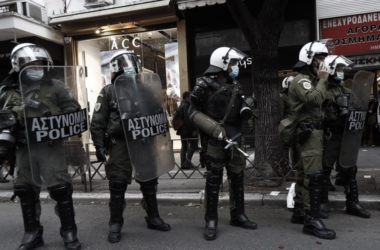A new report has cast a harsh spotlight on the European Union’s multi-million euro campaign to combat so-called “disinformation,” accusing Brussels of building an Orwellian framework to monitor and manage online speech under the guise of democratic preservation.
The report, titled Manufacturing Misinformation: The EU-funded propaganda war against free speech, argues that the bloc has channeled vast sums—€648 million, to be exact—into 349 projects aimed at regulating digital content, outspending transnational cancer research by a striking 31% over the same period. The funding primarily flowed through the EU’s Horizon research program.
At the heart of this expansive initiative lies the Digital Services Act (DSA), a sweeping regulatory package that the European Commission says is designed to tackle harmful or illegal content online. But critics argue it’s doing far more than that—and not in a good way.
“These projects form a closed ecosystem of ideologically aligned institutions feeding off taxpayer money to enforce a narrow, bureaucratic narrative,” said Dr. David Lewis, one of the report’s lead authors. “There’s no real pursuit of truth here—only control.”
According to the report, many of these initiatives rely on artificial intelligence and advanced algorithms to monitor speech, classify posts, and flag anything that doesn’t align with the EU’s version of acceptable discourse. In doing so, the system encourages what the authors describe as a technocratic suppression of dissent masquerading as digital governance.
MCC Brussels, one of the report’s publishers, didn’t hold back in its assessment, warning that the EU is “constructing an ideological infrastructure” to manage political narratives and curtail public debate. “This campaign—marketed under the banner of democracy—actually undermines it by restricting free expression and replacing it with elite-approved consensus,” MCC stated.
The criticism arrives at a time when populist movements across Europe are gaining traction, fueled in part by public distrust of political elites and top-down governance. As @henryolsenEPPC noted on X, “European elites are losing their grip on power because they have failed their people consistently for decades. That—not TikTok campaigns or algorithm tweaks—is driving the populist wave.”
The European Commission, however, insists the Digital Services Act isn’t a vehicle for censorship. Commissioner Henna Virkkunen maintains the DSA only targets clearly illegal content such as terrorist propaganda, child exploitation materials, and election interference. The law, she claims, establishes proportionate, transparent rules that preserve fundamental rights while enhancing online safety.
Platforms are required to notify users of content moderation decisions and are barred from using targeted ads for minors. “It’s about accountability, not silencing voices,” Virkkunen argued.
Not everyone’s convinced. Tech giants like Elon Musk and Mark Zuckerberg have expressed concern that the DSA veers into censorship territory, while some U.S. lawmakers have gone further, warning Brussels not to infringe on the rights of American users.
Whether the DSA strikes the right balance between safety and speech remains hotly contested. But if the report’s findings are accurate, Europe may be standing on a slippery slope—one where the line between protecting democracy and undermining it grows increasingly blurred.




